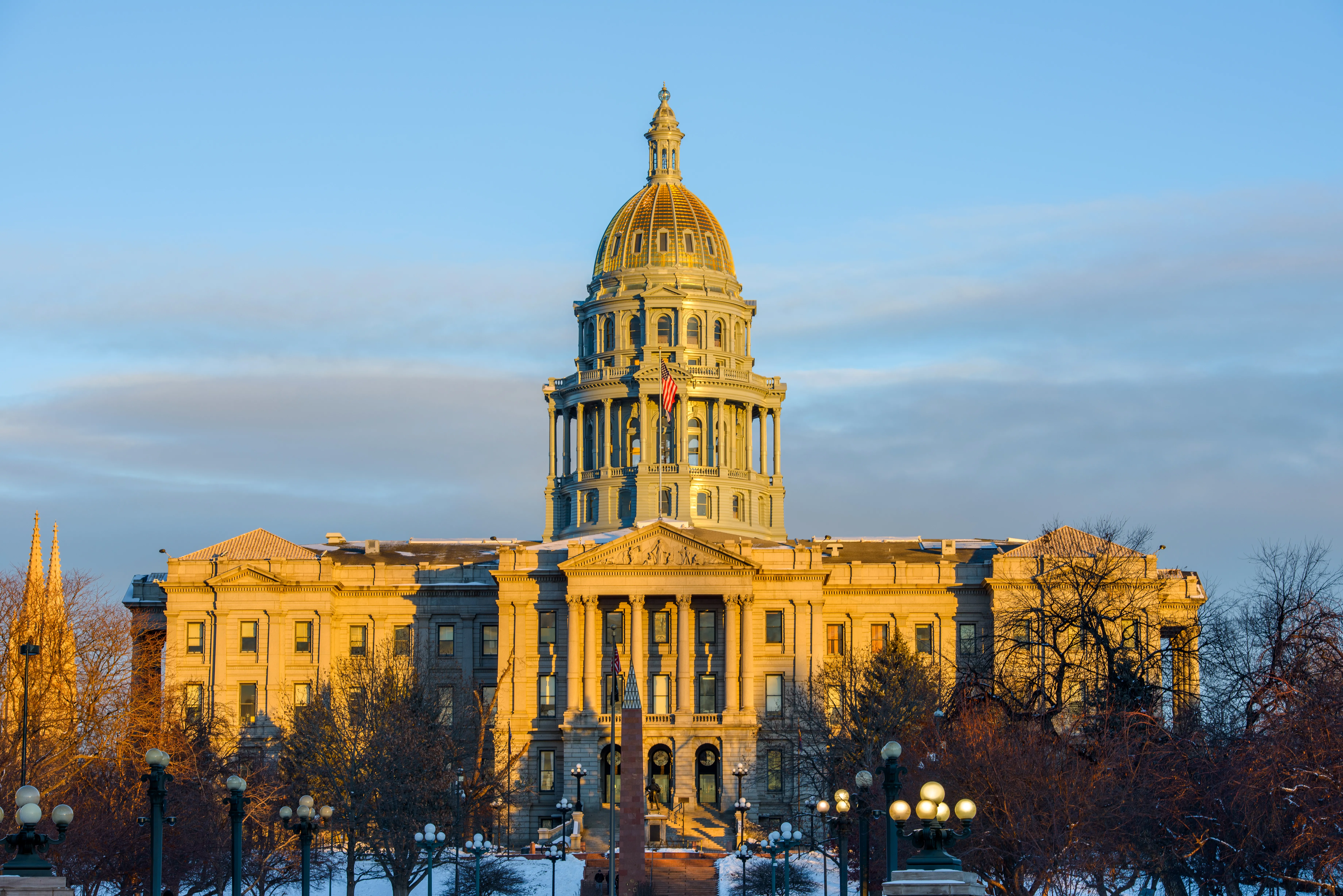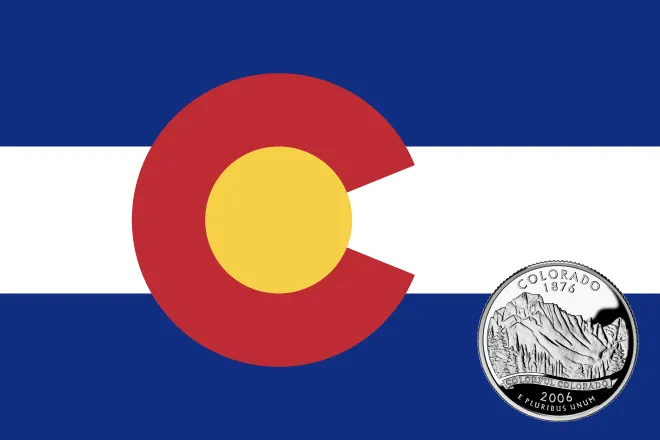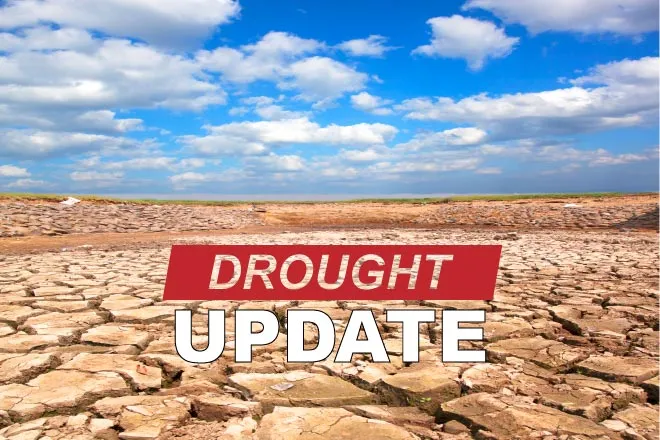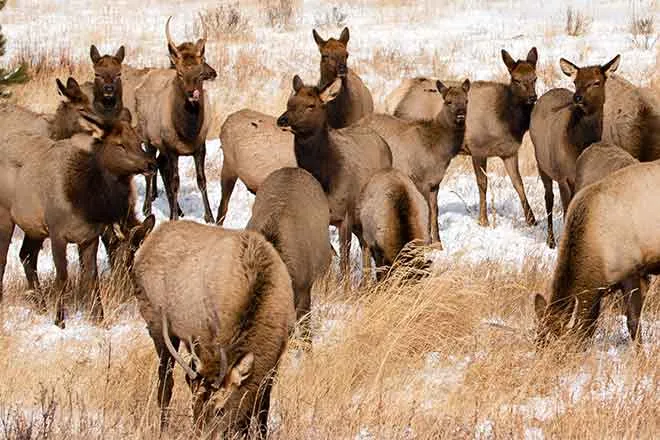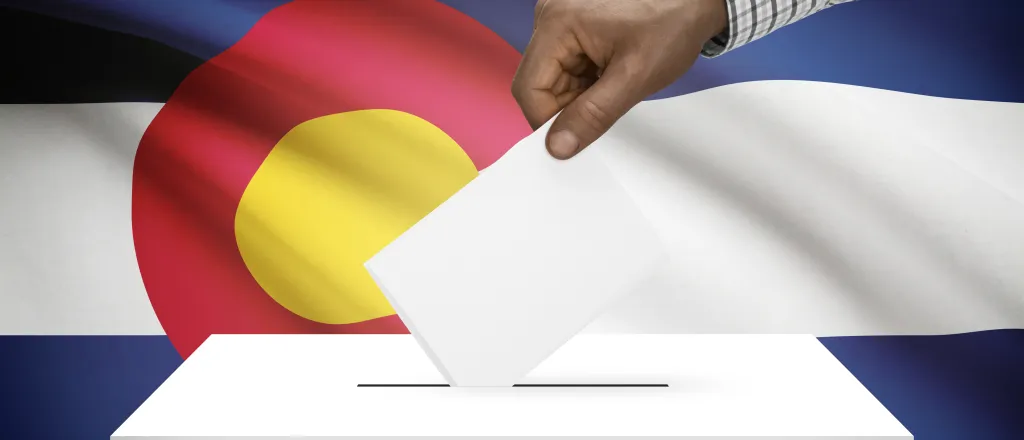
Colorado bill would improve access for eligible incarcerated voters
(Colorado Newsline) El Paso County is home to the largest jail in Colorado, with more than 1,000 people detained in the facility. But none of those people who were eligible to vote while incarcerated cast a ballot in the last election cycle.
A Colorado bill that passed its first committee hearing Thursday would require county sheriffs to better work with county clerks to facilitate voting for eligible voters who are confined in jails.
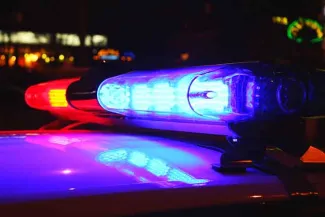
© iStock - Alex_Schmidt
The bill would require county sheriffs to designate someone to help eligible voters access their ballots. The designee would be responsible for informing confined individuals of their eligibility and coordinating with the county clerk to set up a temporary, in-person voting center at their local county jail.
People who are incarcerated prior to trial or have been convicted of a misdemeanor are eligible to vote in Colorado. People who are confined and serving a sentence for a felony conviction don’t have the right to vote in Colorado, but once they make parole, they earn back that right.
“Sixty percent of the general population across the state of Colorado are pre-trial, and so what you see reflected before you is a bill that will strengthen and ensure that those individuals have access to the ballot,” said state Sen. Julie Gonzales, a Denver Democrat who sponsored the measure, Senate Bill 24-72.
The bill only applies to statewide election issues on the ballot, because many people are confined in county jails outside of their home county and local clerks can only provide ballots for the elections they administer. Gonzales said the decision to include this limitation in the bill was hard to make, but she said, “It felt unreasonable to ask the county clerk from a completely different county to also keep track of municipal ballots.”
My office’s role, and I want to make this clear, is that all eligible voters have the opportunity to access and cast their ballot … We do not exist to decide if someone is guilty or not.
– Denver County Clerk Paul López
Several county clerks and other advocates testified in favor of the bill because of how it aims to improve detained people’s ability to access their fundamental right to participate in elections. Representatives from the League of Women Voters, the American Civil Liberties Union of Colorado, the Colorado Organization for Latina Opportunity and Reproductive Rights, Colorado Common Cause and other organizations spoke in favor of the legislation.
“These are people’s constitutional rights that should be honored and protected,” said Jasmine Ross, manager of civic engagement at the Colorado Criminal Justice Reform Coalition. “If we can encourage people in the community to vote, educate them on the importance of voting and give them access to candidate information and issues, why can’t the same encouragement and efforts be given to confined eligible voters who are in jail across our state?”
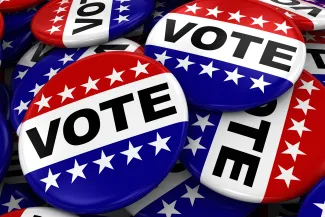
© iStock
Denver Clerk Paul López has already helped people who are in Denver county jails vote with the help of the local sheriff’s office, CCJRC and the League of Women Voters. He said many pre-trial detainees are in jail “because they simply cannot afford their freedom.”
“This would codify a program that my office currently runs to ensure voters in jail have equitable access to their ballot,” Lopez said. “My office’s role, and I want to make this clear, is that all eligible voters have the opportunity to access and cast their ballot … We do not exist to decide if someone is guilty or not.”
Hunter Nelson, political chair at Colorado Black Women for Political Action, cited a 2020 study from Colorado Common Cause that found most people in Colorado jails are eligible to vote, but the infrastructure and accessibility differing from county to county makes it difficult to know what to do.
“All Coloradans deserve the right to vote and deserve access to the information needed to make informed voting decisions, including Black women and people who are being held in county jails and detention centers during an election cycle across our state,” Nelson said.
‘Civil rights issue’
While Jefferson County Clerk and Recorder Amanda Gonzalez testified in support of the bill, Gary Gittens, detention division chief for the Jefferson County Sheriff’s Office, testified against it on the sheriff’s behalf. Gittens said that while the sheriff’s office supports anyone in their custody who wants to vote, the logistics and cost would be too much for the department to handle.
Gonzalez said that in the 2022 election year, 72% of active Jefferson County voters cast a ballot, but only 0.63% of eligible voters in the county jail cast a ballot.
“That’s just over half a percent in a jail where the sheriff is telling us that the voting program is working,” she said. “In 2022, only three people cast a ballot — to me, that’s a civil rights issue.”
Gonzalez said 84% of the eligible voters in custody are awaiting trial and are still considered to be legally innocent, and Black, brown and low-income voters disproportionately miss voting opportunities because of this.
“Jails across the country have successfully welcomed various services including medical staff and education opportunities,” Gonzalez said. “If we can ensure safety during these services, we can undoubtedly find ways to provide safe ways to vote in our jails.”
Eagle County Sheriff James van Beek expressed concern about getting safety clearances for elections officials who would need to come into the jails and providing staff to ensure those election workers are safe.
“We have worked very, very closely with the clerk and recorder, and since 2018, we have never had one issue with anyone not being able to vote,” van Beek said.
State Sen. James Coleman, a Commerce City Democrat who chairs the committee, asked representatives from the Eagle County and Jefferson sheriff’s offices what they currently do to ensure eligible voters in their jails access elections. Van Beek and Gittens said they have posters as well as other notifications in place to make sure people in the facilities are aware of upcoming elections and how they can participate. Gittens said Jefferson County also has a hotline in the jails that connects directly to the local clerk’s office during business hours for any questions about elections.
Officials representing El Paso County’s sheriff and clerk testified against the bill as well, saying it creates a solution to a problem that does not exist, since the people the bill covers already have the right to vote. They said it will cost more money and time than their offices have to offer.
“El Paso County’s jail is the largest in the state, and sadly neither our sheriff nor I were invited to the discussion table about this bill,” El Paso County Clerk Steve Schleiker said. Schleiker told committee members that no eligible incarcerated voters cast a ballot in the last election cycle.
A few other clerks and sheriffs who testified said they wished they, as well as the County Sheriffs of Colorado and the Colorado County Clerks Association, had been consulted prior to the development and introduction of the bill. Gonzales said she was frustrated to hear this testimony, as she said she was meeting with these organizations about the bill as early as October 2023.
Other counties who had officials testify against the bill included Pueblo, Douglas and Logan.
The committee approved two amendments: one that shifts criminal penalties for election violations that would be applied to sheriffs to civil penalties, and another that removes language describing the temporary voting centers as a “voter service and polling center.” The latter amendment also creates more flexibility around when clerks can coordinate a day of in-person voting at county jails.
The bill passed the committee 3-2, with the two Republican members, state Sens. Mark Baisley of Sedalia and Larry Liston of Colorado Springs, voting against it. It is sponsored by Rep. Manny Rutinel, a Commerce City Democrat, in the House.
Colorado Newsline is part of States Newsroom, a nonprofit news network supported by grants and a coalition of donors as a 501c(3) public charity. Colorado Newsline maintains editorial independence. Contact Editor Quentin Young for questions: info@coloradonewsline.com. Follow Colorado Newsline on Facebook and Twitter.





